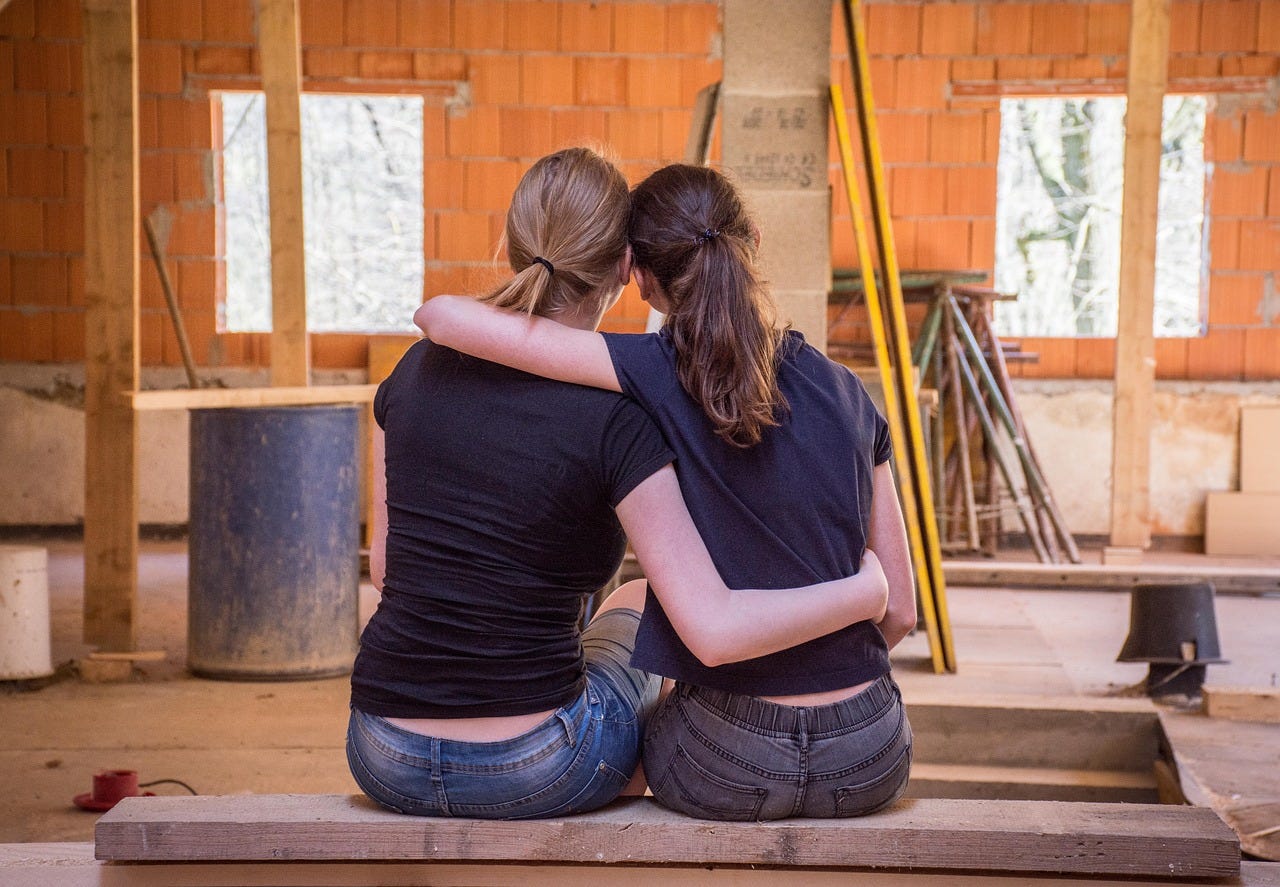What We All Really Want (and Why It Helps to Remember That)
“Every human being is just trying to get their emotional needs met.” 🥰
(the above was picked up this week from a book or a podcast, I forget exactly where, but I felt compelled to write it down!)
It’s easy to look around these days and feel like we’re all at odds. Politics, religion, personal values—it sometimes seems like people are standing on opposite sides of a canyon, shouting into the void. Social media feeds feel like battlegrounds. Comment sections are war zones. And even WhatsApp groups can turn into passive-aggressive stand-offs over something as minor as oat milk vs cow’s milk.
But is the world really more divided than ever?
Honestly… I don’t think it is.
What’s changed is visibility. We’re now painfully aware of what other people think, feel, believe, and do. Not because we’re having more meaningful conversations, but because we carry pocket-sized megaphones around with us every day. And when people shout loud enough—whether it’s to vent, provoke, or go viral—those are the voices we hear most.
I talk a lot about how we’re wired for negativity—and here’s another place it shows up. News headlines and social media algorithms are basically engineered to spike our cortisol. Conflict and outrage are sticky. Cute dogs and peaceful sunsets are soothing, but they don’t tend to rack up the retweets and likes.
So it’s no wonder we sometimes start to believe we live in a world full of monsters, idiots, and people we could never understand. But here’s a reframe worth considering:
Underneath all the noise, every human being is merely trying to get their emotional needs met.

This belief has been a bit of a north star for me. Because once you start looking through that lens, you stop seeing enemies and start seeing people. People shaped by their upbringing, their environment, their fears and traumas. People doing their best to belong, to be safe, to be loved—even if their way of going about it seems completely bonkers to you.
I once read a brilliant book called How Minds Change by David McRaney, and it put this into words beautifully. One of the main ideas is that most of us don’t build our beliefs from scratch—we inherit them. From our parents, our schools, our communities. And unless we actively challenge ourselves to explore new perspectives, we’re likely to keep orbiting the same fixed viewpoints forever.
There’s a concept in the book that hit me like a brick. It was along the lines of:
“If you think you’d believe something different from someone else, had you been born in exactly the same circumstances, you’re most likely dead wrong.”
That’s a humbling thought, isn’t it?
We’re tribal creatures at heart. We’ve evolved to stay close to the group because, once upon a time, survival depended on it. So fitting in—mirroring the values and opinions of our people—wasn’t just comforting, it was life-saving. That instinct hasn’t gone away. It’s why most of us (even the rebels!) still crave connection, community, and approval in some form.
And when people don’t feel heard or seen? They’ll often shout louder. Not because they’re inherently awful, but because they want what we all want: to matter. To belong. To feel safe. To feel okay.
So, no, we’re not more divided than we’ve ever been. But we are being fed a steady stream of information that tells us we are—and it takes conscious effort to unplug from that and see the bigger picture.
Why not try a social media or a news fast, just for a few days, a week if you can, and see how you feel?
And if you take one thing from this today, let it be this:
Everyone is just trying to meet their emotional needs.
Sometimes clumsily. Sometimes in ways that clash with our own.
But if you can hold onto that when the world feels loud and angry, it makes everything a little easier to bear.
Or, in the wise words of Mr. Rogers:
“When I was a boy and I would see scary things in the news, my mother would say to me, ‘Look for the helpers. You will always find people who are helping.’”
Let’s be those people. Let’s look for those people.
Because at the end of the day, that’s how we find our way back to each other.




